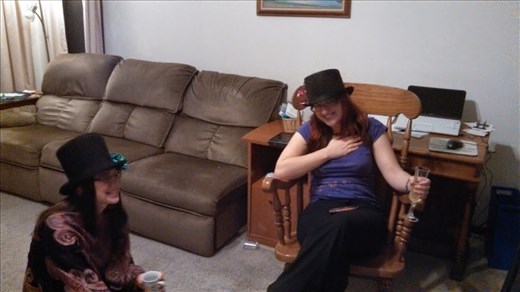On Thursday, we had a kanji test. Now, here’s the thing that’s probably going to screw me over in another few weeks: I have not yet had to study for any of the grammar, kanji, or vocabulary quizzes. I have opened up a book, glanced through the word lists, and been sufficiently prepared for the tests. That only works because I’ve already learned this material. (I wish that was all it took normally.) In a few more weeks, we’ll have finished what I covered in Japanese class and moved on to new kanji, vocabulary, and grammar. And I’m actually going to have to study then, and it will be a new and surprising change. But only for me, because my classmates will be used to it by then.
Future me can have fun dealing with that problem. For right now, it’s great.
After that test was over, we moved on a discussion of the elementary school we were going to the next day. Surprised? So were we. We’d known in theory that we would be going there, because it had been on the schedule and Suzuki-sensei had made sure none of us had afternoon courses. But other things, like the 15-20 minute self-introduction we were supposed to prepare, or the indoor shoes we were supposed to have, were a complete surprise.
As I worked on the self-introduction that evening, I was able to compare information with the other exchange students. (Every class was going to the elementary school.) We’d all been told to meet at the same time, but we’d ll been given different ending times, ranging from noon to 16:00. We’d been told the thing about having indoor shoes, other classes had not. The first year students were doing a kind of show and tell followed by them drawing animals for the elementary school students. 2nd year students had been told basically nothing, but expected to memorize their speeches. We’d been told subjects that we’d been sitting in on and given a vague outline of a schedule, and been told to include lots of pictures on our powerpoints.
So I found pretty pictures of books, Chicago, Carthage, my family, and my travels. That was easy, though I disproportionately large percentage of my family pictures has someone wearing a funny hat, and a disproportionately small percentage of my pictures of Carthage have a building in them. (I can attest that Carthage does have buildings, and I spend most of my time sleeping, studying, or learning in them. Also, most of the time my family members don’t wear hats, funny or normal. Even if the evidence disagrees.)

When I e-mailed the presentation to Yamaguchi-sensei, she immediately responded “So pretty!” Do you have a script to go with that?” I didn’t respond, figuring she probably wouldn’t like my answer. (“No, I’m just winging it.”)
Meanwhile, back in spirituality… We ended up getting into a discussion of suicide, sparked by the notion of 人身事故 (jinshinjiko). I’m not sure if the word itself refers to the delays caused by someone throwing themselves in front of a train or suicide by train, but I know that both are a significant problem in Japan. So much so that they have a word for it, there is a significant fine for the family of the person who committed suicide, and there appears to be a general sangfroid about the consequential delays.
From there, Elena asked the question of how suicide in general was seen in Japan. Rather than answer that question right away, the professor went around the room and had everyone answer the question for how they think suicide is seen in their country. Generally, the answers seemed to come down to religion. The more religious the country, the stronger the stigma towards suicide was. (Granted, the sample size was rather small for that class. Four American, one Ecuadorian,two Korean, one Chinese, one Japanese, and one Czech student.) Otherwise, the prevailing view appeared to be something between pity and sadness.
The Czech student sitting next to me made a comment along the lines of “I don’t really know. Life in the Czech Republic is pretty good, lots of jobs, etc.” (In Korea and Japan, lack of employment had been given as a common reason for suicide.) Then the professor and Sarah got into a miniature discussion about something, so I turned to the the Czech student and asked about how things had been historically, as in under Soviet influence.
“I can only speak for the years that I’ve been alive, but yeah, I imagine it was very different then.”
“I’ve read a bit from that time, and it sounded pretty bleak. Milan Kundera is one of my favorite authors.” (You may recall me mentioning this to the high schoolers earlier in the week, and it not ending very well. Apparently I don’t learn.)
“Oh really? He writes in French, doesn’t he?”
“Yes, he moved to France and lives there now.”
“So what language did you read him in?”
“English. But I have one of his books in French and want to read that.”
“Oh yeah. Actually, one of my professors at university knows him. They were friends.”
“Really?”
“Yeah. He’s...” some word that I forget that’s somewhere between “good” and “cool” that applied to Kundera’s personality. Apparently he’s a decent person and not just a good writer. Much more positive praise than the last time I met someone who’s met someone who knew an author that I really like . (Apparently Coetzee is kind of a jerk, based on someone who once tried talking to him and only got “yeah” and “huh” as responses.)